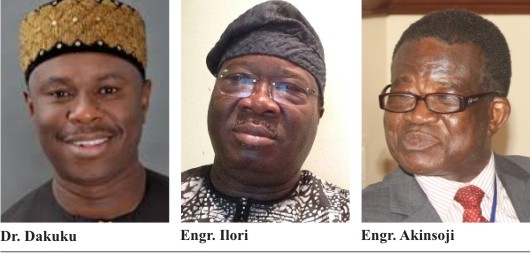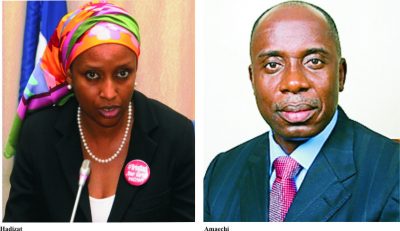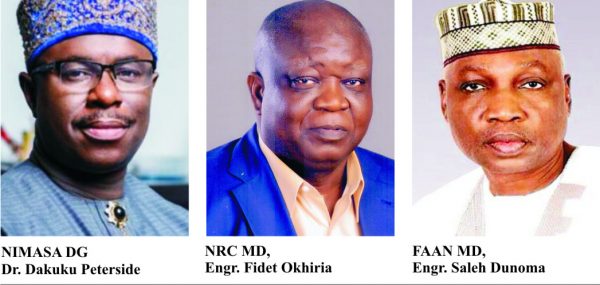Nigerian Seafarers Development: Exploring Sustainable Strategies

By Kenneth Jukpor
Twelve years after the Nigerian Seafarers Development Programme (NSDP) was established, it is yet to solve the problem of dearth of competent seafarers in the country. What alternatives are there to address this? How could the nation avail seafarers the mandatory seatime experience? Are there vessels to eventually absorb trained seafarers? Do Nigerian training institutions churn out cadets and marine officers that meet global standards? Can foreign ships be cajoled to take Nigerian seafarers onboard?
These are questions which remain unanswered till today. Nigerian Maritime Administration and Safety Agency (NIMASA) has the mandate to enhance seafarers development but there are several issues militating against the agency’s success.
A sustainable approach for seafarers development would require thorough planning and most stakeholders have criticized NIMASA for its NSDP which has been devoid of such strategic planning.
In this report eminent maritime personalities proffer solutions to the age-long problem of seafaring in the country.
The Chairman, National Seafarers Welfare Board (NSWB) Nigeria, Otunba Kunle Folarin recently unveiled a template that could see about 5000 Nigerian seafarers placed onboard ocean-going vessels annually.
Folarin who is also the Chairman of Nigerian Ports Consultative Council (PCC), posited that this could be attained if the Federal Government could develop an agreement that would see ten Nigerian seafarers placed onboard each vessel that calls at the nation’s ports.
Noting that an average of 5,000 vessels visit Nigerian ports annually, Otunba Folarin stated that 5,000 seafarers could be gainfully employed and positioned to earn foreign currency.
“Nigeria has the potential to attract over 5000 vessels a year calling at our port. Even if only 10 seafarers are manning each vessel and we have only one Nigerian on each of these vessels at Nigerian ports. It means 5000 Nigerian seafarers will be employed. We need a policy that persuades and if not possible, enforces that all ship calling at Nigerian ports should employ at least one or two Nigerians when they call at the ports. This will address the employment issues for seafarers,” the PCC boss said.
While this seems to be a genuine nationalistic approach, there are flaws in the suggestion according to the Head, Maritime Safety and Seafarers Standards (MSSS) at NIMASA, Capt. Sunday Umoren.
His words: “Sometimes these ideas seem genuine but we have to ask ourselves what incentives can be given to ships that only call at Nigerian ports to deliver cargoes. Some of these ships only come in once in six months or once in a year. However, such arrangement could be done with the Nigerian National Petroleum Corporation (NNPC) where there are specified buyers and contracts lasting for years. So, Nigeria could insert clauses saying part of the agreement to buy the nation’s crude oil would include training some seafarers onboard the vessels. NNPC contracts that last for five years or more and we can pursue such agreements there. I think that is angle we should look at”
He, however, noted that inserting incentives that would appeal to ship owners would be costly and the nation may end up losing.
“How much incentive can we give to foreign ships? Are we going to say free port or harbour dues? Nobody would allow you come to their port free. So, we need to work out something that would really work and benefit the whole system,” he argued.
Meanwhile, a former President of the Nigerian Merchant Navy Officers and Water Transport Senior Staff Association (NMNOWTSSA), Engr. Matthew Alalade posited that the nation must invest in its training institutes, purchase training vessels and create an environment that supports indigenous ship owners to absorb Nigerian seafarers.
“You can’t force ships to take Nigerian cadets, that’s just not possible. It is also not the practice anywhere in the world. I don’t see how Nigerian Ports Authority (NPA) or NIMASA can compel foreign ships to take Nigerian seafarers because they come to Nigerian shores.”
“If ships take Nigerian seafarers and they do the same in Ghana, Togo and every nation they visit; the ship becomes a marketplace. The ship owner would be unable to cater for these people. Besides, where is the place of professionalism? We should also note that other nations also have the challenge of placing seafarers onboard vessels,” he told MMS Plus.
He opined that to enhance the opportunities of forex via seafaring the nation should focus on repositioning the training institutions to able churn out employable seafarers in the country and marketable to foreigners.
Alalade also condemned the mass production of cadets in the country, noting that the statistics of available vessels for training such cadets should have been taken before the massive investment in cadet training.
“The training approach is faulty and there is too much emphasis on cadets. There are other aspects of seafaring that are ignored. Other officers also require training that cost so much. Can’t the Federal Government channel some of the money for cadets to these officers?”
“The truth is that we don’t have sufficient competent seafarers in Nigeria. NIMASA approached indigenous ship owners to place Nigerian seafarers onboard vessels recently and the agency couldn’t provide the seafarers. So, we don’t have enough officers. We focus on cadets all the time but these are just junior or aspiring officers,” he argued.
Although this problem of getting seatime experience and employment opportunities for seafarers has been a recurring issue, a former Rector of Maritime Academy of Nigeria (MAN) Oron, Engr. Olu Akinsoji expressed optimism that they nation to solve the problem with the right incentives.
According to him, one of such incentives would have to the elimination of Customs duties for ships to be registered in the country.
His words: “One of the incentives could be to allow a foreign ship not pay Customs duty if it would be registered in the country. If it is indigenous, there should be concession of duties on the ship. You can lift the initial cost on indigenous ship owners via Customs duties. This way, the ship owner isn’t overtaxed while establishing his enterprise. If you tax somebody so much for buying a ship that he intends to register in your country, aren’t you pushing him to do the registration in another country where it is free?
Another incentive that could appeal to ship owners is to give them tax rebate equivalent to the cost of placing the cadets onboard ships.
Akinsoji noted that the nation should see this as an investment because the seafarer that has been trained and employed has been removed from the poverty line. Besides, the seafarer has also been positioned to earn foreign exchange and contribute to the nation’s economic growth.
“We have been short-sighted over this because we refuse to waive Customs duties. For instance, you can waive Customs duties worth N15million on a ship and tax the investor on the company opened in Nigeria and the cargoes. With this strategy, you can recoup that N15million within five years. You would have created an enabling environment that led to the establishing of a company in the country for another 25 years, employing Nigerians and creating opportunities in the nation,” he said
He posited that countries that understand shipping don’t find it difficult to roll out these incentives because they see the big picture and know that it is sensible. However, in Nigeria it is impossible to convince Customs or the policy makers at the presidency not to collect duties on a ship.
Ideally, if Nigerian seafarers have certification that can be used anywhere in the world, it means they are employable anywhere in the world besides Nigeria. This is very important bearing in mind that other countries like the Philippines, Korea, and India monopolize the ratings in the lower cadre of seafaring around the world.
The onus is on Nigeria; precisely the NIMASA to create incentives that would be attractive to ship owners and insert clauses that would get Nigerian seafarers onboard vessels.
If the conditions are right and the incentives appealing, ship owners would consider doing what the country wants. It also behooves on nation to ensure its seafarers are trained to requisite global standards and the best are exported so that they earn top reviews for the nation in the practice.
There would also be need to enhance the nation’s integrity to keep agreements for as long as the parties adhere to the other end of the bargain as one of the challenges limiting Foreign Direct Investments (FDI) in Nigeria has been propensity to cancel agreements as soon as there is a change in administration. Such political interference in economic decisions would have to be jettisoned because shipping thrives on long term planning.
Given that the environment has to be conducive for such an agreement to work, it is unfortunate that the nation currently lacks such good environment to support this bid to get Nigerian seafarers onboard foreign and indigenous ships.
Experts have posited that Nigeria needs a well thought-out strategy to develop seafarers and not just assume that the availability of cargoes would be the solution.
It is time to look at the big picture. It is time to move forward by letting go of short term gains via Customs duties and hostile business environments. Seeing the big picture would lead to the dawn of opportunities for Nigerian seafarers. This success strategy can also be applied to other aspects of the nation’s economy.
A former Chief Executive Officer (CEO) of General Electric says, “If you don’t have a competitive advantage, don’t compete”.
Nigeria does have competitive advantage in seafaring and that is the teeming youth and highly intellectual people. The country is also geographically positioned and endowed as a maritime nation. It’s high time she begins to exploit these advantages.







